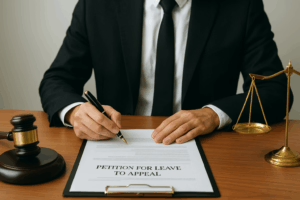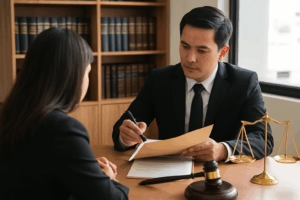In the vibrant market of Thailand, consumers are provided with an array of choices for goods and services. To ensure fair transactions and protect consumer interests, Thailand has robust consumer protection laws in place. Understanding these laws, particularly provisions against deceptive advertising and unfair business practices, is essential for both consumers and businesses. In this SEO blog, we’ll delve into the intricacies of consumer protection laws in Thailand, exploring rights, regulations, and redress mechanisms, with insights from a reputable law firm in Bangkok.
Understanding Consumer Protection Laws in Thailand:
Consumer protection laws in Thailand are designed to safeguard the rights and interests of consumers while promoting fair and transparent business practices. These laws encompass various aspects, including product safety standards, pricing regulations, and protections against deceptive advertising and unfair business practices.
Rights and Protections Afforded to Consumers:
Consumers in Thailand are entitled to several rights and protections under the law, ensuring a safe and satisfactory consumer experience. These rights include:
1. Right to Safety: Consumers have the right to purchase products and services that meet safety standards and pose no threat to their health or well-being.
2. Right to Information: Consumers are entitled to accurate and truthful information about products and services, including pricing, features, and terms of sale.
3. Right to Choice: Consumers have the right to choose freely from a variety of products and services available in the market without coercion or unfair influence.
4. Right to Redress: In case of dissatisfaction or harm caused by a product or service, consumers have the right to seek redress, including refunds, replacements, or compensation.
5. Right to Education: Consumers have the right to access education and information about their rights and responsibilities as consumers, empowering them to make informed purchasing decisions.
Provisions Against Deceptive Advertising:
Deceptive advertising practices are prohibited under Thai law to protect consumers from misleading or false information. Some common forms of deceptive advertising include:
1. False Claims: Advertising that makes false or exaggerated claims about the quality, performance, or benefits of a product or service.
2. Bait-and-Switch Tactics: Advertising a product or service at a low price to attract customers, only to promote a different, more expensive product or service upon arrival.
3. Hidden Fees: Failing to disclose additional fees or charges associated with a product or service, misleading consumers about the true cost.
4. Misleading Comparisons: Making unfair or misleading comparisons with competitors’ products or services to gain an unfair advantage in the market.
5. Endorsement Deception: Using false endorsements or testimonials to create a misleading impression of a product or service’s popularity or effectiveness.
Unfair Business Practices:
In addition to deceptive advertising, Thai consumer protection laws also address various unfair business practices that harm consumers. These may include:
1. Unconscionable Contracts: Contracts that exploit a consumer’s vulnerability, ignorance, or inability to understand the terms and conditions, resulting in unfair or oppressive terms.
2. Unreasonable Warranty Conditions: Imposing unreasonable conditions or limitations on product warranties, depriving consumers of their rights to repair, replacement, or refund.
3. Unfair Trade Practices: Engaging in anti-competitive behavior, price-fixing, or collusion to manipulate market prices or restrict consumer choice.
4. Product Misrepresentation: Selling counterfeit, refurbished, or adulterated products under false pretenses, deceiving consumers about the true nature or origin of the product.
5. Unethical Collection Practices: Using aggressive or harassing tactics to collect debts from consumers, such as making false threats or disclosing sensitive information.
Enforcement and Redress Mechanisms:
To ensure compliance with consumer protection laws and address violations, Thailand has established various enforcement agencies and redress mechanisms. These include:
1. Consumer Protection Authorities: Government agencies tasked with enforcing consumer protection laws, investigating complaints, and taking legal action against violators.
2. Consumer Complaint Channels: Platforms for consumers to lodge complaints against unfair business practices or deceptive advertising, such as consumer protection hotlines or online complaint portals.
3. Alternative Dispute Resolution: Mediation or arbitration services provided by government agencies or consumer organizations to resolve disputes between consumers and businesses amicably.
4. Civil Remedies: Consumers may seek civil remedies through the courts, including compensation for damages, injunctions to stop unfair practices, or orders for corrective action.
5. Criminal Prosecution: Serious violations of consumer protection laws may result in criminal prosecution, leading to fines, imprisonment, or other penalties for offenders.
Conclusion:
Navigating consumer protection laws in Thailand is essential for both consumers and businesses to ensure fair and ethical business practices. By understanding their rights and responsibilities, consumers can make informed purchasing decisions and seek redress in case of harm or dissatisfaction. Likewise, businesses must comply with legal requirements and uphold ethical standards to maintain consumer trust and avoid legal repercussions. Together, these efforts contribute to a vibrant and transparent marketplace that benefits all stakeholders, with guidance from a reputable law firm in Bangkok.
Contact : Siam Center Law Group by calling +66(0) 2 648 5041, +66(0) 2 648 5042





